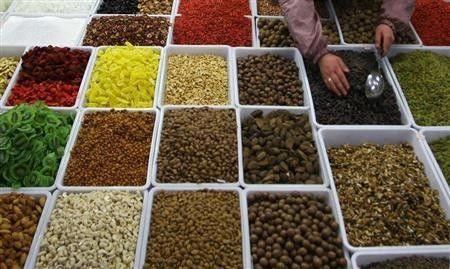Betel Nut: Asia's Deadliest Nut Linked To Thousands Of Deaths Because Of Oral Cancer

The popular Asian nut derived from the Areca palm tree is chewed by almost one-tenth of the world's population because of its glow and stimulating properties. However, the latest study has revealed that this nut is responsible for thousands of deaths worldwide.
A study has reported high rates of oral cancer among people who consume betel nuts in the initial 10 years of its first consumption. The government in Taiwan is planning to take measures to curb the use of the nut, popular as “Taiwan's chewing gum,” to prevent thousands of lives from going to their graves.
Betel nuts are most commonly consumed by the class of people with long working hours, such as drivers, fishermen and those working on construction sites. It is consumed in fresh or dried form, often wrapped in a package known as “quid.”
The International Agency for Research on Cancer has listed each component of the quid as a potential carcinogen, except cardamom and cinnamon. Although the composition of quid varies globally, it is most often prepared using betel leaf, slaked lime, tobacco and other flavouring agents like cardamom.
Of all the ingredients, slaked lime seems to be the most dangerous one to the researchers since it is known to cause abrasions in the mouth, making it the potential entry point for a dozen of other cancer-causing agents and chemicals.
In addition to popular stimulants like nicotine, alcohol and caffeine, betel nuts are believed to be one of the strongest substances that alerts mind. The nut is also famous among its global consumers for the cure of impotence and indigestion, in addition to being the symbol of marriage and love in some places.
Other countries, including India and Thailand, have also started campaigning against the use of betel nuts, reported BBC.
To report a problem or to leave a feedback on the article, send an e-mail to emailtoguneet@gmail.com.





















